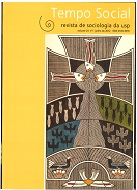The "Lula Era", the 2010 presidential elections and the challenges of post-neoliberalism
DOI:
https://doi.org/10.1590/S0103-20702012000100011Keywords:
Workers' Party, Lula, Dilma Rousseff, Presidential elections, PostneoliberalismAbstract
The article explores the stunning success of the Brazilian Workers Party (PT) and its leader, Lula, former trade unionist, in winning a third consecutive presidential victory, with the election of Dilma Rousseff in 2010. In historical perspective, it examines the ways in which Lula's government (2002-2010) represented a break with the past while summarizing its substantive achievements in redistributing wealth and opportunity. Focusing on the tension between a historic party-centric petismo (declared partisan party support) and the broader personal popularity of its leader (lulismo), it offers evidence that Lula and the PT have retained their foundational ethos of enhancing popular self-esteem while fostering citizen participation and civil society mobilization, albeit under new conditions. It concludes with a diagnosis of Dilma Rousseff government's challenges in light of the international economic scenario, domestic labor mobilizations, and the constraints of the Brazilian political system.Downloads
Download data is not yet available.
Downloads
Published
2012-01-01
Issue
Section
Articles
License
Copyright (c) 2015 Tempo Social

This work is licensed under a Creative Commons Attribution-NonCommercial 4.0 International License.
How to Cite
Fortes, A., & French, J. (2012). The "Lula Era", the 2010 presidential elections and the challenges of post-neoliberalism. Tempo Social, 24(1), 201-228. https://doi.org/10.1590/S0103-20702012000100011


